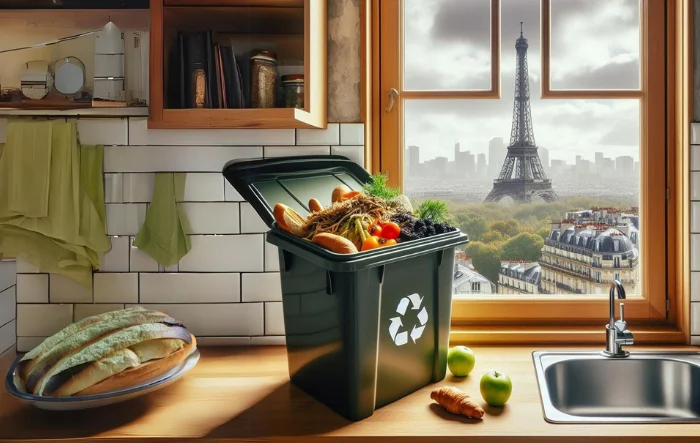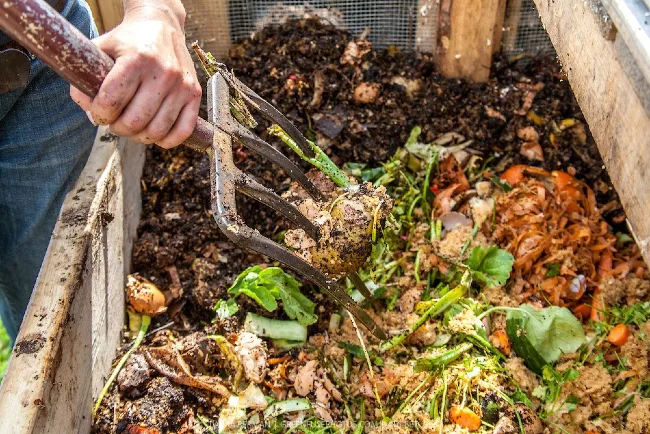January 1, 2024, marked the start of a new policy, and law, in France that makes composting no longer a choice by the eco-conscious, but rather, a requirement. France’s approach to environmental conservation with the ‘compost obligatoire’ mandate is seen as government overreach by many (particularly in the US), but the directive heralds a new era where recycling organic waste isn’t just encouraged; it’s compulsory. And it could make a big difference on France’s trash costs and sustainability goals.
The Green Fund’s Role in Eco-friendly Waste Disposal
The French government, through its Green Fund, has taken a proactive stance in assisting municipalities to set up efficient systems for sorting bio-waste. This includes everything from your dinner leftovers to those apple peels and even the grass clippings from your Sunday gardening.
In a departure from previous rules that only targeted major waste producers, now every household and business must play their part. The choices? Either a dedicated bin for home collection or taking your organic matter to a local collection point. It’s a small step at home that leads to a giant leap for environmental care.
Once collected, this organic waste isn’t just discarded. It’s transformed into biogas or compost, offering a sustainable alternative to chemical fertilizers. And for those with a green thumb, home composting is another fantastic option.
Authorities are easing into this transition, which is smart. While they focus on providing accessible composting options for everyone, there won’t be immediate penalties for non-compliance. However, keep an eye out for potential stricter regulations in the future.
The Environmental Impact: A Third of Waste Gone Green
It’s startling, but true – about one-third of household waste is bio-waste. This mix of food and garden remnants, when not properly handled, contributes significantly to the production of greenhouse gases like methane and CO2 in landfills and incinerators.
Food waste isn’t just a local problem; it’s a global challenge. The European Commission reveals that around 16 percent of the EU food system’s total emissions are due to food waste. On a global scale, the United Nations reports that food loss and waste account for approximately 8 percent of all human-caused emissions each year.
When organic waste gets mixed with other recyclables, it spells trouble.
It can contaminate materials meant for recycling, like paper, plastic, and glass. As of 2018, only 34 percent of the EU’s total bio-waste was being appropriately collected, leading to the loss of valuable soil nutrients.
In France alone, an estimated 82 kg (180 pounds) of compostable waste is discarded per person annually. That’s a mountain of potential soil enhancers simply tossed away.
Europe’s Approach: Different Strokes for Different Folks
While the EU’s Waste Framework Directive encourages bio-waste collection, it stops short of mandating it. However, many European nations have taken it upon themselves to implement organic waste separation at a municipal level.
And then there’s Milan, Italy! Milan serves as a model with its residential food waste collection program, operational since 2014. Residents received dedicated bins and compostable bags to kick-start this eco-friendly initiative, and the city has been composting strong since with very few complaints.
Countries like Austria, the Netherlands, and Belgium have embraced widespread home composting and separate bin systems. In contrast, the UK has been more gradual in its approach, with plans for separate food waste collection rolling out in 2023. While voluntary for households in England, Wales and business owners face stricter enforcement.
Minimizing Waste: A Guide to Sorting Bio-Waste
The mantra here is simple: reduce, reuse, recycle. Meal planning, preserving food before it expires, and utilizing every part of an ingredient can significantly cut down waste. What can’t be saved or repurposed should be composted or separated for collection. This includes everything from eggshells to tea grounds, but remember, liquids and non-food products are a no-go in the bio-waste bin.
More To Discover
France’s compost obligatoire rules are more than just a policy change; they’re a paradigm shift in how we view and handle our waste. It’s a bold step towards a greener future, one that other countries might soon follow. As this initiative unfolds, it’s worth keeping an eye on how it shapes not just waste management, but also France’s broader environmental policies.
Considering France’s pioneering steps in mandatory composting, an exploration into global sustainable waste management practices seems like the natural next chapter. How are other countries tackling this universal challenge? Stay tuned.




















